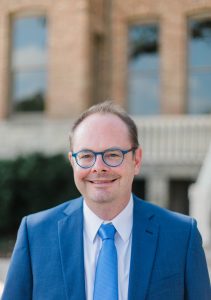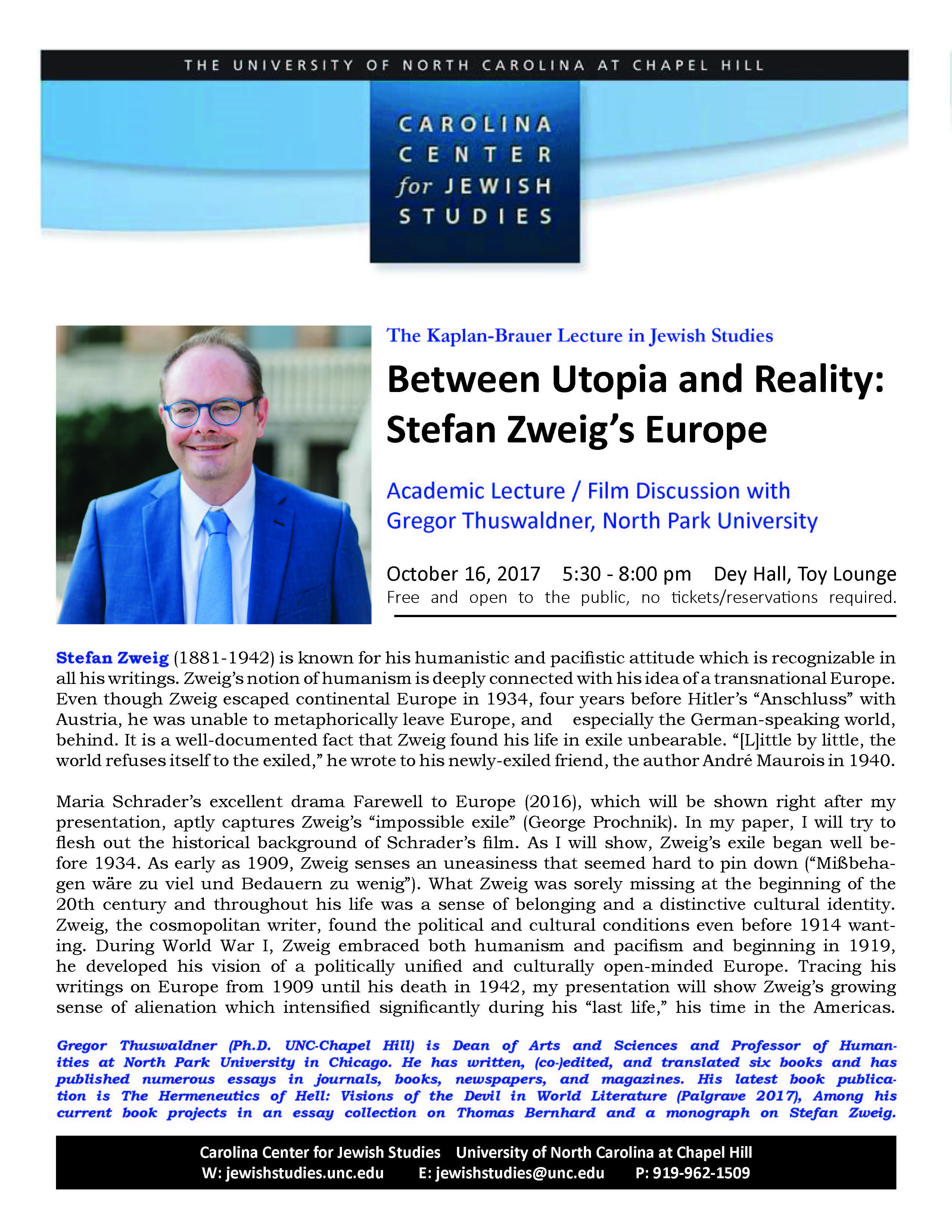
- This event has passed.
Between Utopia and Reality: Stefan Zweig’s Europe
October 16, 2017 @ 5:30 pm - 8:00 pm
 Academic Lecture/Film Discussion with Gregor Thuswaldner, North Park University
Academic Lecture/Film Discussion with Gregor Thuswaldner, North Park University
Stefan Zweig (1881-1942) is known for his humanistic and pacifistic attitude which is recognizable in all his writings. Zweig’s notion of humanism is deeply connected with his idea of a transnational Europe. Even though Zweig escaped continental Europe in 1934, four years before Hitler’s “Anschluss” with Austria, he was unable to metaphorically leave Europe, and especially the German-speaking world, behind. It is a well-documented fact that Zweig found his life in exile unbearable.”[L]ittle by little, the world refuses itself to the exiled,” he wrote to his newly-exiled friend, the author André Maurois in 1940.
Maria Schrader’s excellent drama Farewell to Europe (2016), which will be shown right after my presentation, aptly captures Zweig’s “impossible exile” (George Prochnik). In my paper, I will try to flesh out the historical background of Schrader’s film. As I will show, Zweig’s exile began well before 1934. As early as 1909, Zweig senses an uneasiness that seemed hard to pin down (“Mißbehagen wäre zu viel und Bedauern zu wenig”). What Zweig was sorely missing at the beginning of the 20th century and throughout his life was a sense of belonging and a distinctive cultural identity. Zweig, the cosmopolitan writer, found the political and cultural conditions even before 1914 wanting. During World War I, Zweig embraced both humanism and pacifism and beginning in 1919, he developed his vision of a politically unified and culturally open-minded Europe. Tracing his writings on Europe from 1909 until his death in 1942, my presentation will show Zweig’s growing sense of alienation which intensified significantly during his “last life,” his time in the Americas.
Gregor Thuswaldner (Ph.D. UNC-Chapel Hill) is Dean of Arts and Sciences and Professor of Humanities at North Park University in Chicago. He has written, (co-)edited, and translated six books and has published numerous essays in journals, books, newspapers, and magazines. His latest book publication is The Hermeneutics of Hell: Visions of the Devil in World Literature (Palgrave 2017), Among his current book projects in an essay collection on Thomas Bernhard and a monograph on Stefan Zweig.
This is the Center’s Kaplan-Brauer Lecture. It is free and open to the public, no tickets or reservations required. Please visit our web site for directions/parking information for Dey Hall.

